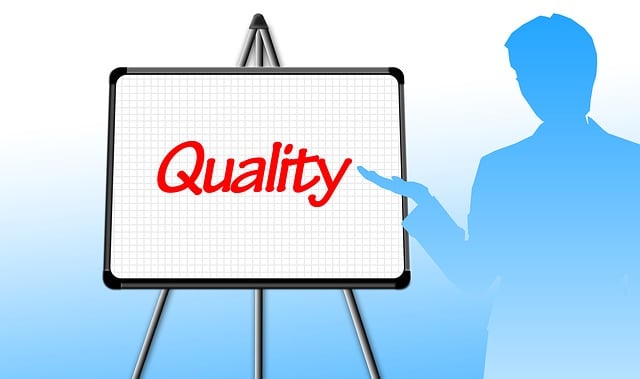In the UK, where demand for translation services for Informed Consent Forms (ICFs) is rising, specialized medical translators are essential to ensure patients from diverse linguistic backgrounds fully understand procedures and alternatives, thereby safeguarding autonomy and promoting ethical conduct. Accurate translations minimize errors, respect cultural sensitivity, and enable patients to make informed decisions about their health, fostering trust and active participation in healthcare decisions. Choosing reputable translation services focused on precision, quality control, and subject matter expertise is crucial for patient safety, ethical standards, and legal compliance.
Accurate consent form translations are crucial for effective communication and legal compliance in healthcare. In a diverse UK setting, where patients come from various linguistic backgrounds, professional translation services play a vital role in ensuring informed consent. This article explores the significance of precise translations, delving into legal frameworks, patient safety, ethical considerations, and best practices to enhance clinical encounters. Understanding these aspects is key to improving care quality, respecting individual rights, and fostering trust between healthcare providers and diverse patient populations.
- Understanding Informed Consent: The Legal Framework
- The Role of Translation in Healthcare Settings
- Ensuring Patient Safety and Privacy through Accurate Translations
- Navigating Ethical Dilemmas with Consent Form Localisation
- Best Practices for Choosing Translation Services in the UK
- Impact of High-Quality Translations on Patient Experience
Understanding Informed Consent: The Legal Framework

In many medical and research settings, understanding informed consent is not just best practice but also a legal requirement. The concept ensures individuals fully comprehend the nature, risks, benefits, and alternatives of a procedure or study before agreeing to participate. This active understanding and agreement are crucial in protecting participants’ autonomy and ensuring ethical conduct.
In the UK, where translation services for Informed Consent Forms (ICFs) are increasingly in demand, the importance of accurate translations cannot be overstated. ICFs must be translated into the languages of potential participants to ensure they can comprehend the information, thereby facilitating truly informed consent. Translation services that specialise in medical documents are vital to this process, ensuring legal compliance and ethical practice.
The Role of Translation in Healthcare Settings

In healthcare settings, accurate consent form translations are paramount to ensuring effective communication and patient understanding. With an increasing diverse patient population in the UK, it’s crucial that medical professionals rely on professional translation services to bridge the language gap. Informed consent forms, which outline potential risks, benefits, and alternatives of a treatment or procedure, must be translated with precision to maintain patient autonomy and decision-making capacity.
Translation services for informed consent forms play a vital role in upholding ethical standards and legal requirements. Medical translators who are proficient in both the source and target languages not only convey the content but also ensure cultural sensitivity and conceptual accuracy. This is essential as even minor translation errors can lead to patient confusion, misinformed decisions, or legal complications. Thus, healthcare providers in the UK should always opt for specialized translation services to guarantee that consent forms are accessible and understandable for all patients.
Ensuring Patient Safety and Privacy through Accurate Translations

Accurate translations of consent forms are crucial in healthcare settings, especially in a multicultural society like the UK. Language barriers can pose significant risks to patient safety and privacy. When medical professionals rely on machine translations or less skilled translators, critical information might be misinterpreted, leading to potential harm. For instance, patients may not fully understand the procedures or side effects, impacting their ability to give informed consent.
Translation services for Informed Consent Forms UK should focus on precision and cultural sensitivity. Professional translators who are fluent in both the source and target languages ensure that medical terminology is accurately conveyed. This minimizes errors and maintains patient autonomy, a fundamental aspect of ethical healthcare practices. Such services play a vital role in facilitating effective communication between healthcare providers and patients from diverse linguistic backgrounds.
Navigating Ethical Dilemmas with Consent Form Localisation

In today’s globalised world, healthcare organisations often deal with patients from diverse linguistic and cultural backgrounds. When it comes to essential documents like Informed Consent Forms (ICFs), accurate translations are not just a legal requirement but also an ethical imperative. Localising these forms ensures that every patient fully understands the information presented, enabling them to make informed decisions about their health and treatment.
Ethical dilemmas can arise when ICFs are not properly translated. Misunderstandings can lead to patients agreeing to treatments or procedures without fully comprehending the risks and benefits. Translation services for Informed Consent Forms UK play a pivotal role in resolving these dilemmas by providing precise, context-sensitive interpretations that respect cultural nuances. This ensures patient safety, maintains ethical standards, and upholds the principles of informed consent.
Best Practices for Choosing Translation Services in the UK

When selecting translation services for Informed Consent Forms in the UK, it’s crucial to prioritise accuracy and cultural sensitivity. Look for providers that employ professional translators with expertise in medical or legal fields, ensuring they understand the nuances of the content. Reputable agencies should also have rigorous quality control measures in place, including proofreading and editing processes, to guarantee error-free translations.
Best practices include requesting samples or case studies to assess their proficiency, checking for native language expertise, and verifying if the translators are subject matter specialists. Additionally, opt for companies that offer transparent communication, provide detailed project timelines, and maintain secure handling of sensitive information.
Impact of High-Quality Translations on Patient Experience

High-quality translations of informed consent forms are paramount in healthcare settings, especially within the UK’s diverse population. Accurate translations ensure patients from various linguistic backgrounds can fully comprehend their medical options and responsibilities. When consent forms are accurately translated, patients can actively participate in decisions about their health, fostering trust and a deeper understanding of their treatment plans.
This is particularly crucial during emergency situations or when dealing with complex medical procedures where quick comprehension is vital. Professional translation services for informed consent forms play a critical role in minimizing language barriers, ensuring patient safety, and upholding ethical standards in healthcare delivery across the UK.
Accurate consent form translations are vital for effective communication and patient centricity within healthcare. They ensure that individuals from diverse linguistic backgrounds fully comprehend their rights, responsibilities, and treatment options, thereby enhancing patient safety, privacy, and overall experience. When selecting translation services for Informed Consent Forms UK, it’s crucial to prioritize quality, ethical practices, and adherence to legal frameworks to avoid potential risks and misunderstandings. High-quality translations can serve as a powerful tool to foster trust, respect, and informed decision-making in healthcare settings.



